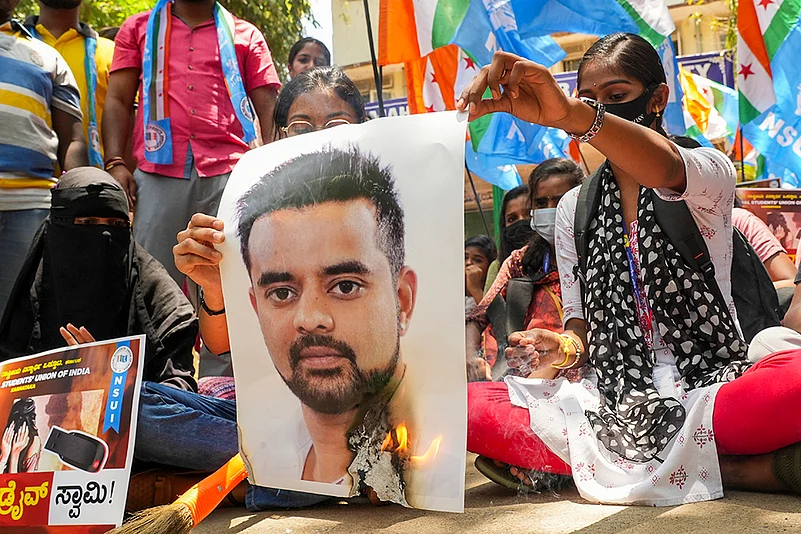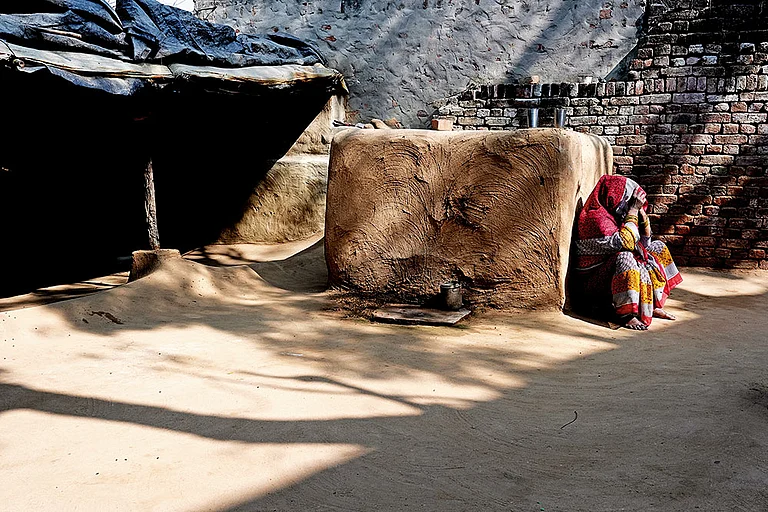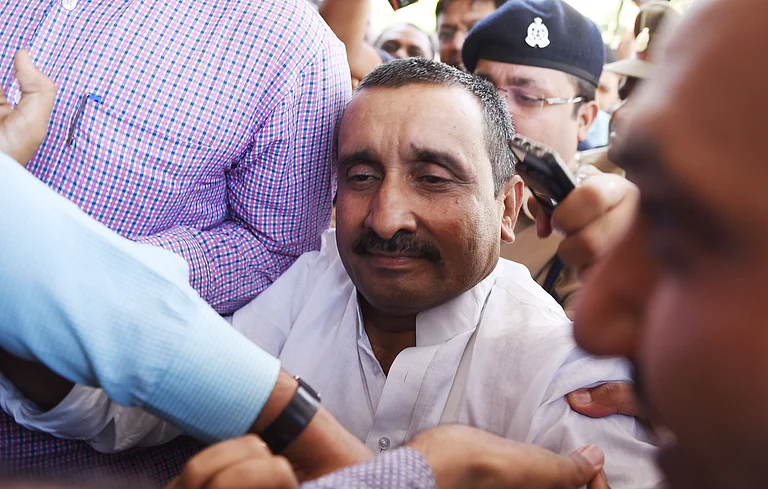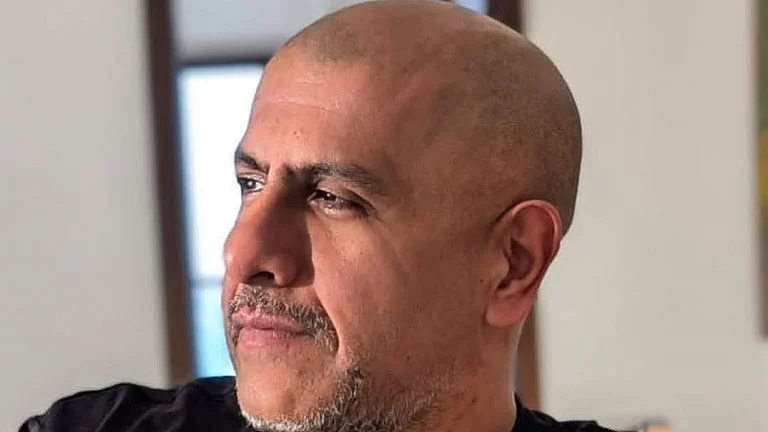
Summary of this article
Former Member of Parliament Prajwal Revanna, a scion of Karnataka’s influential Deve Gowda political dynasty, has been sentenced to life imprisonment for multiple counts of rape, intimidation, and destruction of evidence.
His conviction, which entails serving the rest of his natural life in prison, represents a rare instance of institutional accountability within Indian politics.
This case has sparked a significant political scandal for the Janata Dal (Secular) party, revealing the culture of impunity often associated with dynastic politics, and has empowered other survivors to come forward.
On a sultry afternoon, last Friday, a courtroom in Bangalore, packed with silent spectators, bore witness to one of the most damning moments in Karnataka's political history.
Former Lok Sabha member Prajwal Revanna—heir to the most powerful H D Deve Gowda political dynasty and once touted as a future face of the family-run political party Janata Dal (Secular)—was found guilty of repeated rape, intimidation, destruction of evidence, and violation of privacy.
The verdict preceded Revanna’s first conviction in a sprawling sex crime investigation that has shaken the very core of the state's political establishment.
According to political and legal experts, the verdict, delivered by a special court for MPs and MLAs, is seen not only as a legal milestone but is also a rare instance of institutional accountability triumphing over entrenched political privilege.
The very next day, Judge Santosh Gajanana Bhat sentenced Prajwal to "imprisonment for the remainder of his natural life."
The judgement also imposed a total penalty of ₹11.60 lakh on the convict and ordered that ₹11.25 lakh be paid to the victim in the case.
Revanna was sentenced to "imprisonment for life," which means the remainder of his natural life, under Section 376(2)(n) of the Indian Penal Code for repeatedly raping a woman. Life imprisonment is the maximum punishment possible for such a crime. Additionally, he received another "imprisonment for life" sentence under Section 376(2)(k) for committing rape on a woman while being in a position of control or dominance over her. He was also sentenced under various other sections of the Indian Penal Code and the Information Technology Act of 2000.
The verdict came more than a year after Revanna’s arrest and two months after the conclusion of a turbulent trial, and it is expected to set a precedent for the remaining three sexual assault cases pending against him.
On Friday, while he was pronounced guilty, Revanna, 35, stood quietly as the verdict was read out, his face drained, tears barely restrained. Minutes later, he was whisked away to Parappana Agrahara Central Prison, the largest of its kind in the state and located on the outskirts of the city.
No member of the Gowda family was present, not even Revanna’s influential uncle and Union Minister for Fertiliser HD Kumaraswamy or his father, H D Revanna, a sitting member of the state assembly.
According to political observers, that moment marked the fall from grace of a man once projected as the third-generation torchbearer of a party deeply entrenched in Karnataka's agrarian heartland and its infamy for its opportunistic politics.
Instead, Revanna will be remembered as the central figure in one of India's most disturbing and digitally documented sex abuse scandals.
A Brave Woman's Fight For Justice Against The Odds
At the centre of this landmark judgment case is the unwavering courage of a 48-year-old domestic worker. She bravely stood up to one of the state's most influential families, which includes a former prime minister and a current union minister who has also served as a former chief minister.
Her powerful testimony, delivered over several intense cross-examination sessions, was crucial in securing the conviction. "She stood like a rock," said B.K. Singh, chief of the special investigation team, clearly moved while addressing the media, adding that, "Despite every attempt by the defence to derail the trial, she never wavered."
A Digital Footprint Revanna Could Not Erase
The sordid tale began unravelling in the heat of the 2024 Lok Sabha elections, when pen drives filled with explicit footage—allegedly filmed by Prajwal himself—flooded Hassan district, the family's long-held bastion. The contents of the videos, reportedly retrieved from Prajwal's mobile phone by a disgruntled former driver, featured graphic and non-consensual encounters with multiple women.
The digital trail led to a public and political uproar, eventually prompting the Siddaramaiah-led Congress government in Karnataka to constitute a 40-member Special Investigation Team (SIT) headed by Singh, a senior IPS officer.
The SIT submitted a mammoth five-volume, 1,800-page charge sheet to the court, based on testimonies from 26 witnesses, 180 documentary exhibits, and more than 2,000 photographs and 50 videos.
Despite initial attempts to cast the videos as "morphed" and politically motivated, the scientific forensic evidence was impossible to counter. One senior SIT officer put it bluntly: "Prajwal left a digital footprint even he couldn't erase."
Forensics Played A Big Part In Revanna's Conviction
Officials state that identifying Prajwal in the explicit footage posed the most formidable challenge for investigators. None of the videos showed his full face. But the rest of his anatomy—including his hands and genitalia—was visible.
Investigators turned to a controversial but increasingly accepted technique: anatomical matching of genital features. Using forensic protocols drawn from global studies—particularly on materials related to child sex abuse—experts photographed and compared distinct physical markers such as pigmentation, moles, scars, and vascular patterns on Revanna’s body with those seen in the videos.
They secured judicial approval under Section 53A of the Criminal Procedure Code to capture these images. A senior forensic official confirmed that over ten unique anatomical markers from Revanna’a body matched the video stills. Additionally, the audio from the videos was forensically matched to Revanna’s voice samples.
Location verification further sealed the case. The tiles, curtains, and wall decor visible in the videos matched Revanna’s room in his farmhouse in Gannikada near Hassan and his residence in Bengaluru. Investigators also retrieved DNA from the survivor's clothing, which matched Revanna’s sample.
The Complaints Against Revanna
According to the petitioner, Revanna raped her thrice in 2021—twice in Gannikada and once in Bengaluru. Her ordeal didn't end with assault.
In April 2024, amid rising political tension, she was allegedly kidnapped at the behest of Revanna’s family, including his legislative assembly member father, H D Revanna and held captive in a farmhouse.
The SIT rescued her, and her detailed statement became a cornerstone of the prosecution's case. Throughout the proceedings, Revanna and his family remained in denial. His uncle Kumaraswamy publicly distanced himself, insisting their households were separate. His parents— HD Revanna and Bhavani Revanna, active in local politics—made no public statements. In private circles, they insisted on a "conspiracy" to derail the family's political legacy.
But public opinion, especially in Hassan, has turned. Once hailed as the dynastic heir, Revanna’s name now evokes shame and anger.
The JD(S), which had controversially allied with the BJP under the NDA banner, has seen its reputation nosedive in South Karnataka, its traditional stomping ground.
Revanna’s conviction on Saturday pertains to just one of the four major sexual violence cases against him. Three other survivors, including a political party worker, have accused him of rape and sexual harassment.
A growing number of women—over 70 according to the SIT—have been identified in the leaked videos. Most have chosen silence, fearing stigma, but the door to further prosecutions is now wide open.
Legal experts suggest that this conviction could strengthen the remaining cases.
"The first verdict is always the most crucial," noted senior Bangalore-based women's rights activist Brinda Adige. "It shows that the judiciary can stand independent of political power, forensic complexity, or social status, Brinda said.
Will Political Parties Rethink Their Candidates?
In a country where powerful men often escape accountability for crimes against women, Revanna’s conviction marks a rare, hard-fought victory, she added. It is a testament to the persistence of one survivor, the determination of a special police unit, and the power of scientific evidence to cut through privilege and political clout, she summed up.
According to Asok Naik, special public prosecutor in the case, the conviction also challenges political parties across the board to rethink their candidate selection and internal redressal mechanisms. He asked: If a man facing multiple rape allegations could remain in the fray for Parliament, what does that say about our democratic institutions?
One of the most powerful in Karnataka politics, Revanna belongs to the third generation of the Janata Dal (Secular) 's founding family—grandson of a former prime minister, son of a former minister, and nephew of a present union minister.
Revanna, who had fled to Germany just before the election results, was arrested on May 31, 2024, upon his return to India.
The SIT, under the leadership of Singh and IPS officers Suman Pennekar, Simon C A, and Seema Latkar, swiftly moved to build an airtight case. The scientific evidence, coupled with the survivor's consistent testimony, proved decisive.
"Even the toe of the accused matched with the person in one of the videos," a senior police officer disclosed. It was a meticulous approach that left the defence with little room to manoeuvre.
"The conviction has set a precedent in several ways. First, it has shown that powerful perpetrators—even those from political dynasties—can be held accountable when institutions act with independence and integrity. Second, it has underscored the importance of survivor-led justice, especially in a country where victims of sexual assault often face stigma, disbelief, and retribution. Third, it has reaffirmed the power of forensic science in the face of denials and digital obfuscation," pointed out Naik.
Political observers say the Revanna scandal is not merely about one man's criminality—it is a mirror held up to a political culture that for decades has enabled impunity.
Revanna was not just a lone predator; he was a product of a patronage network that shielded him, from the family's initial attempts to dismiss the charges as a political vendetta to the mysterious silence of senior JD(S) leaders.
"Though his uncle Kumaraswamy distanced himself from the scandal by claiming separate living arrangements, public memory will not easily forget how power and privilege were weaponised against a vulnerable woman, and how close the system came to collapsing under that weight—until a few individuals chose duty over compromise," observed Brinda.
"As Prajwal Revanna sits in a prison cell awaiting options for appeal, the survivors and investigators who brought him to justice continue to live under the shadow of retaliation. Protection for them must be swift, sustained, and non-negotiable. Justice, after all, does not end with a conviction—it begins there," said Naik.
























